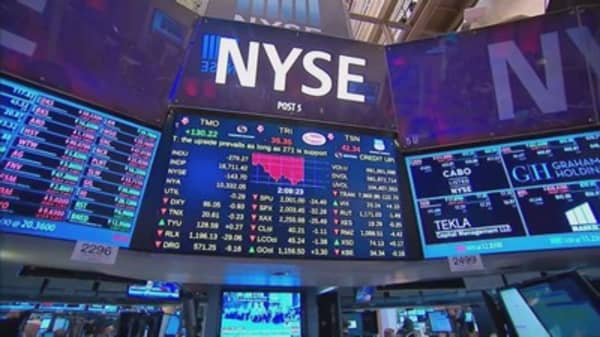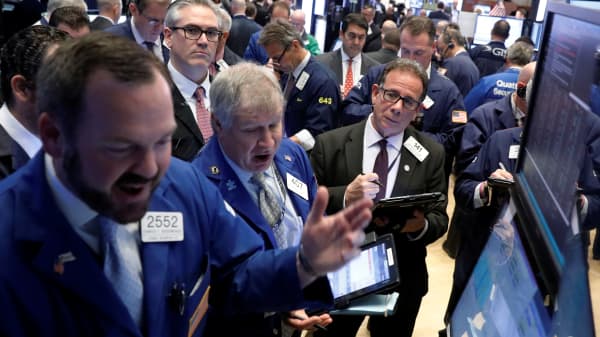My question, with some possible answers:
What will happen into the teeth of the next 20% stock market decline?
Here's what I would guess:
- Vanguard loses 10-15% of its AUM, an enormous outflow in a very compressed period of time as newly-minted passives realize that they're not quite cut out to be passive after all. The pain will prove too much for many recent indexing dilettantes who thought this was easy.
- Reporters will be doing stories on the performance of the large robo-advisors and their "terrible" performance. Vanguard, Schwab, Betterment and Wealthfront will all be under the microscope.
- Paul Singer and his fund Elliot Management, which just raised $5 billion in cash in 24 hours to take advantage of a coming major dislocation, will be on everyone's lips. They'll be the new hedge fund It Girl.
- Buffett will once again look like a genius as he puts some of his $95 billion in cash to work.
- Some lucky doom-saying charlatan who's been wrong about the market for 8 years will cherry-pick some of his crash comments and attempt to be the new guru of the moment. It won't work as well as last time though because these days we have social media – we have the receipts, player.
- Many financial advisors, especially those who are mainly asset managers, will have trouble convincing clients to hang on to their portfolios. The mass disillusionment with risk assets will return faster than expected.
- Tactical strategies will come back into favor, as will the subset of liquid alts that posts the smallest drawdowns.
- Gold will rise $200 or $300 an ounce, GLD inflows will explode. TLT will be the new momentum trade.
- Trump will call for Janet Yellen's head on Twitter, accusing the Fed of hurting the markets to influence the 2018 midterms. She will announce plans to serve out the rest of her term (til January) and then resign, if this happens before then.
- The yen will blow out to the upside vs the euro, wrecking stocks on both continents as contagion fears hit the headlines.
- Faber and Schiff will be brought back on to mainstream financial television, rescued from the web video hits they've been relegated to in recent years.
- The long-short hedge fund crowd will get its "I told you so" moment, their investor letters will be dripping with schadenfreude for the indexing movement.
- Ordinary investors who have not learned from history will be listening to all the worst advice, and making temporary drawdowns into permanent losses.
- Ordinary investors who are listening to the right people will stay the course, or even up their dollar cost average contributions in 401(k)s. The truly intrepid ones will raise the equity proportion of their ongoing contributions to take advantage of the situation.
- We will once again be told that buy and hold is dead. It will take the next 100% bull market from the future lows in order to resurrect the idea of indexing and passive investing. Lots of money will have been lost chasing holy grail strategies between the bottom and then.
What do you think will happen into the teeth of the next bear?
This commentary was originally published on TheReformedBroker.com.
Josh Brown is the creator of The Reformed Broker blog, CEO of Ritholtz Wealth Management and a regular on CNBC"s "Halftime Report." Follow him on Twitter @reformedbroker.
For more insight from CNBC contributors, follow
@CNBCopinion
on Twitter.





